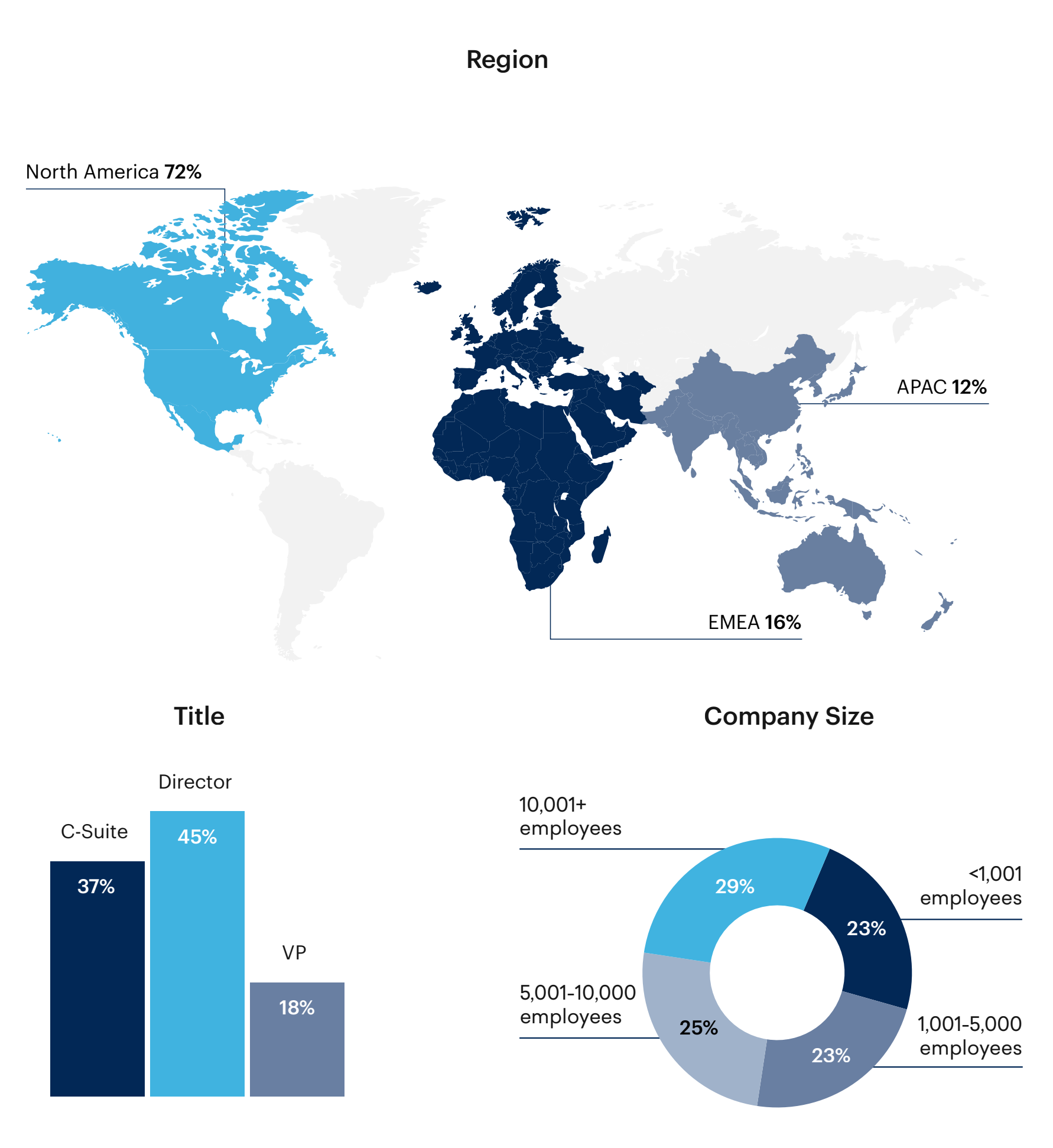AI Adoption in Cybersecurity Tools
Artificial intelligence (AI) technologies are being used in a variety of tools—but are decision-makers adopting AI in cybersecurity?
One minute insights:
 How many are already using AI tech in their cybersecurity tools
How many are already using AI tech in their cybersecurity tools What are the perceived benefits and challenges of AI in cybersecurity
What are the perceived benefits and challenges of AI in cybersecurity Which aspects of cybersecurity will benefit most from AI?
Which aspects of cybersecurity will benefit most from AI?
Many are already using AI in their cybersecurity tools—and are satisfied with the results
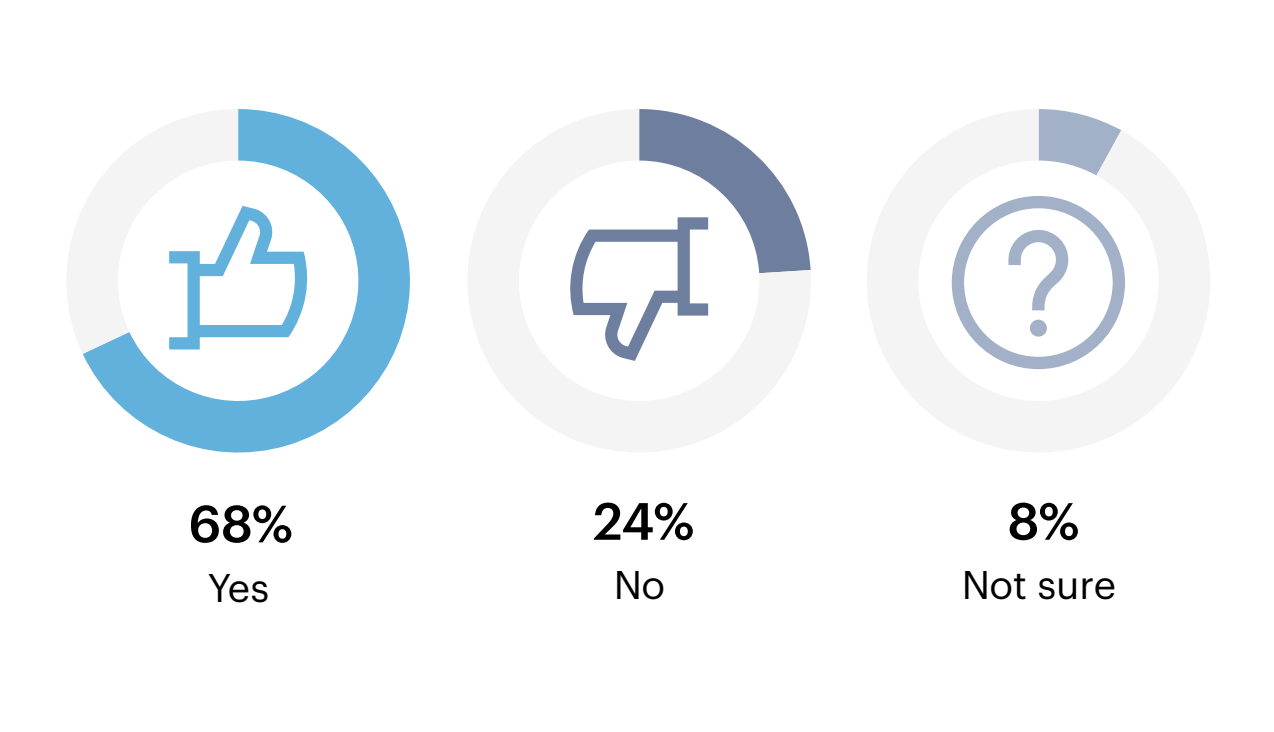
Over two-thirds (68%) of decision-makers are using cybersecurity tools that feature AI technology.
Do any of your current cybersecurity tools use AI?
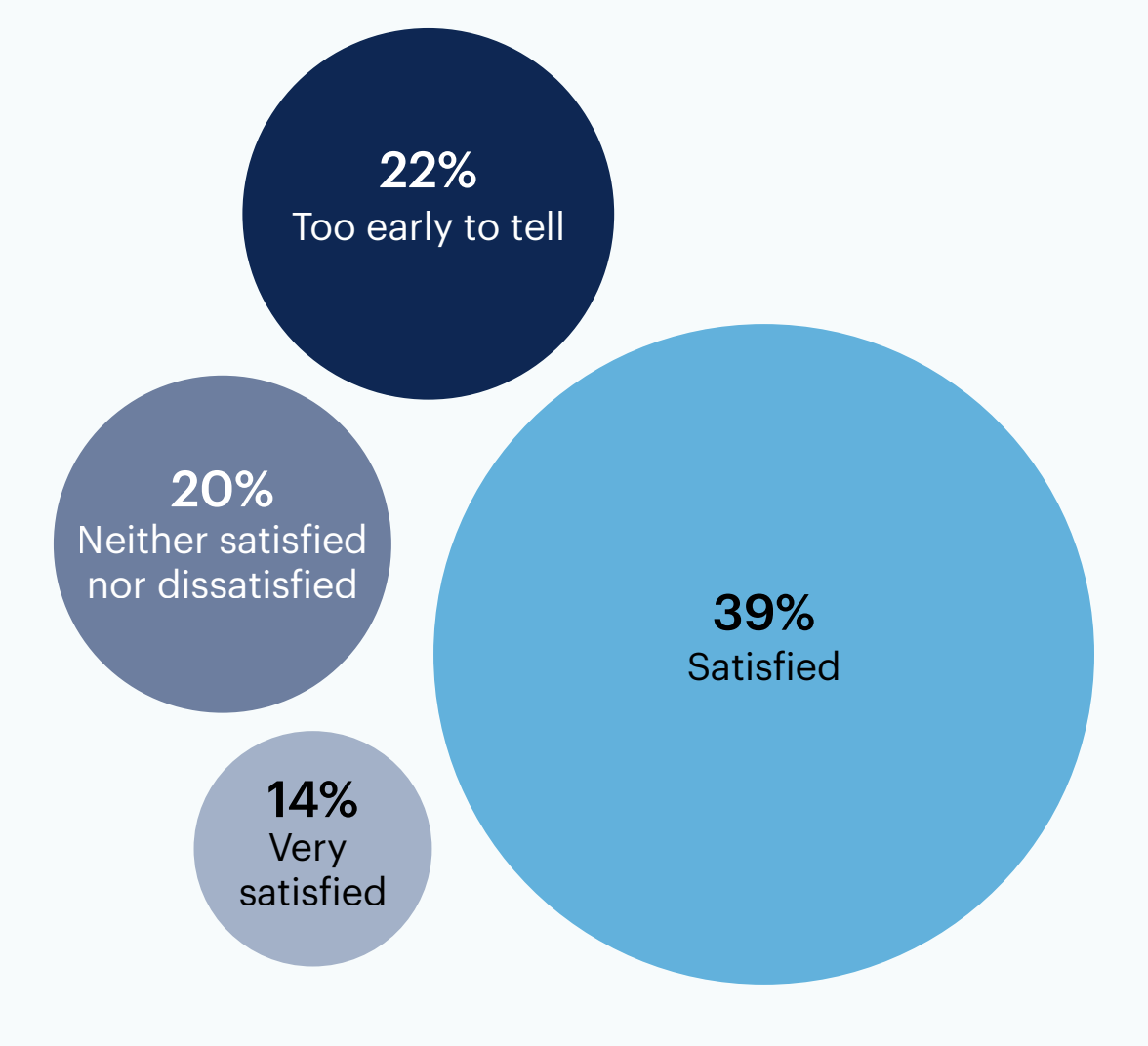
53% are satisfied with how AI is performing in their cybersecurity tool(s), though almost a quarter (22%) feel it’s still too early to tell.
Are you satisfied with how the AI component functions in your cybersecurity tool(s)?
Dissatisfied 2%, Very dissatisfied 0%, Satisfied for some tools, dissatisfied for others 3%
Of those who aren’t currently using AI tech in their cybersecurity tools, over two-thirds (67%) are willing to consider using AI in the future.
On a scale of 1-5, how willing are you to consider using AI in your cybersecurity tools?

[A]ny security provider that wants to exist in the future needs to consider AI.
Decision-makers think detection speed and predictive capabilities are the main AI benefits, but worry about talent gaps and costs
The main perceived benefits of using AI in cybersecurity are to increase detection speed (74%), utilize predictive capabilities (67%), and reduce errors (53%).
What do you think are the main benefits of using AI in cybersecurity?
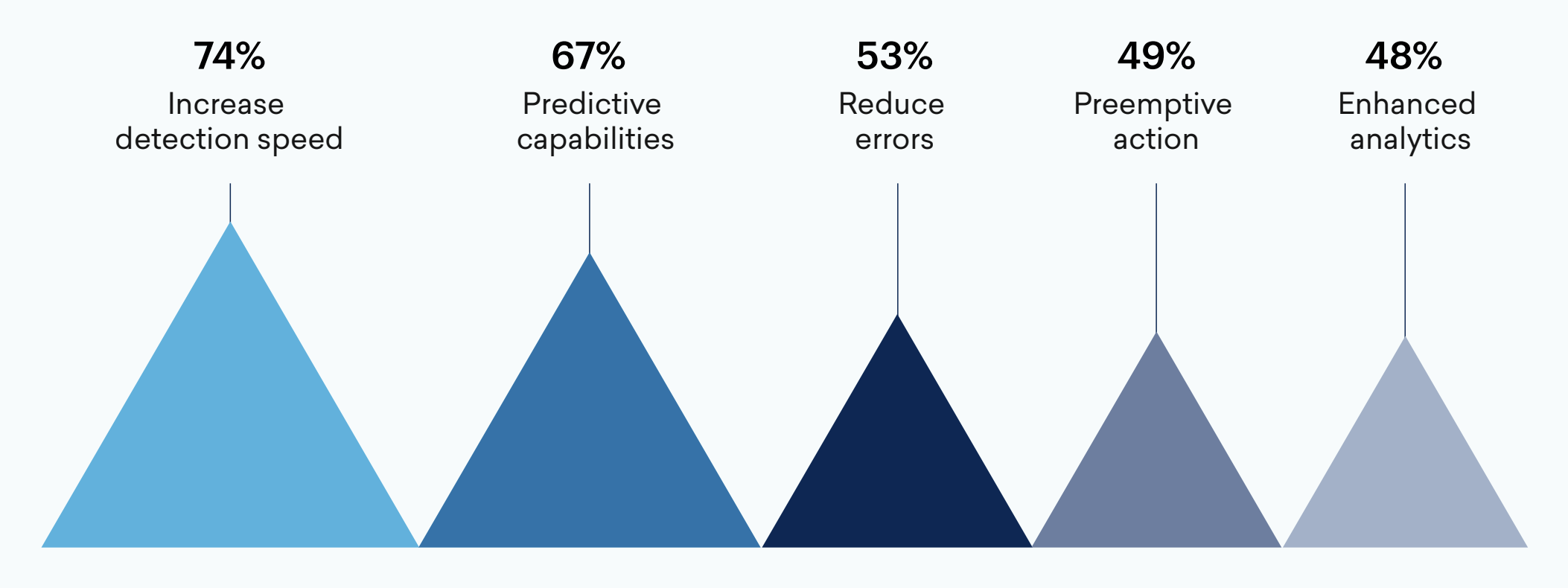
Increased IT/Security Operations Center e iciency 42%, Increased detection sensitivity (detect novel / “zero-day” attacks) 41%, Reduce costs 38%, Scalability 36%, None of these 1%, Other 0%
As for concerns about using AI in cybersecurity tools, decision-makers worry about finding the talent to implement the tools (63%), affording the costs (55%), and accommodating for tech stack complexities (50%).
Are you concerned about any of the following with regard to the use of AI in cybersecurity tools?
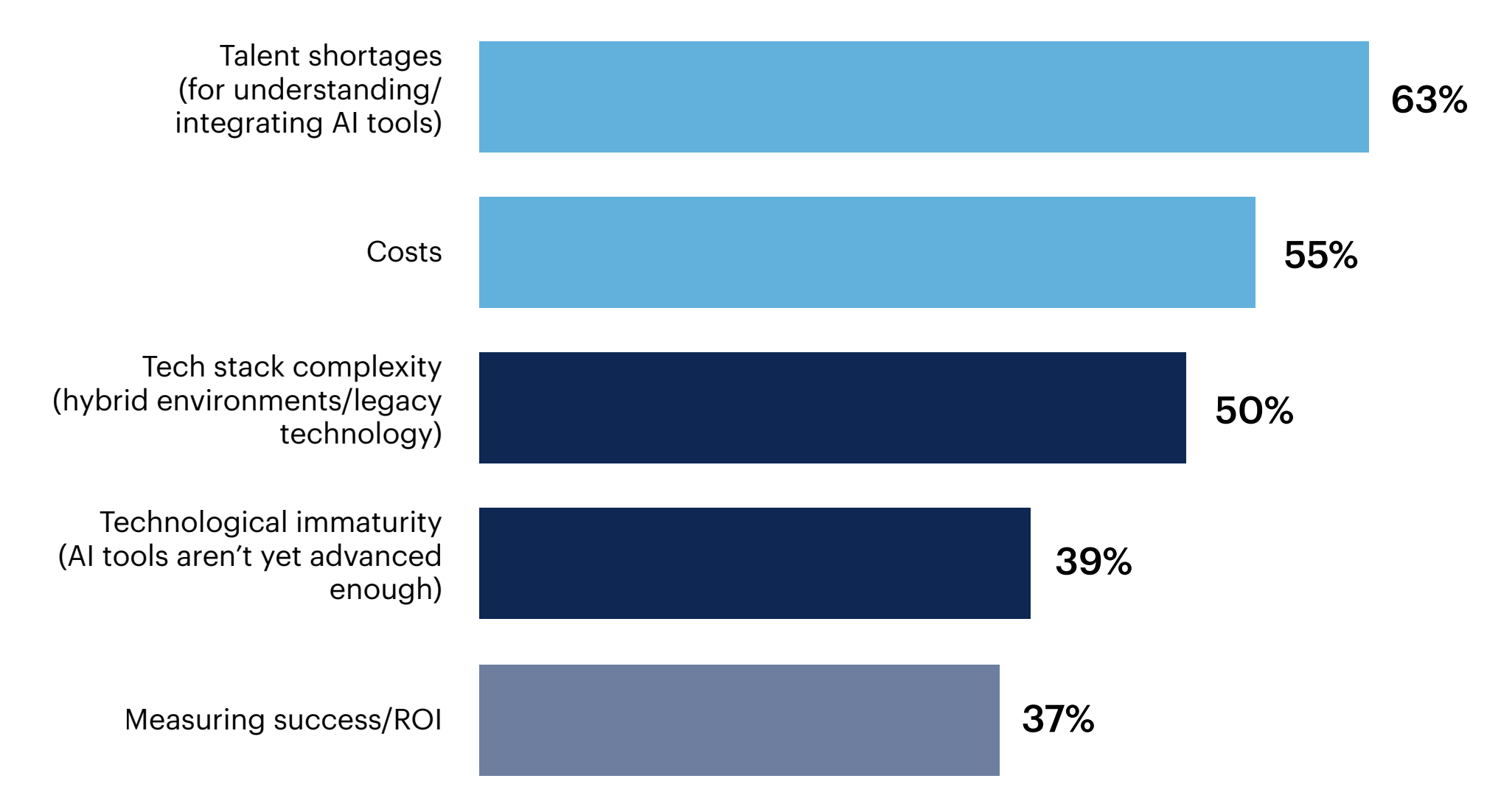
Separating useful data out from the noise 35%, Compliance issues 23%, Ethical concerns over the use of AI technologies 17%, Regulatory changes 11%, None of these 2%, Other 0%
Privacy preserving AI techniques will need to be considered heavily.
[We] need to hire more talent. [It’s] diff icult to grow our own.
AI will benefit network and IAM security—and most agree it will reduce successful zero-day incidents
Looking at which aspects of cybersecurity will benefit most from AI tech, most decision-makers chose network security (65%) and identity and access management (IAM) (64%).
Will any of the following aspects of cybersecurity benefit from AI?
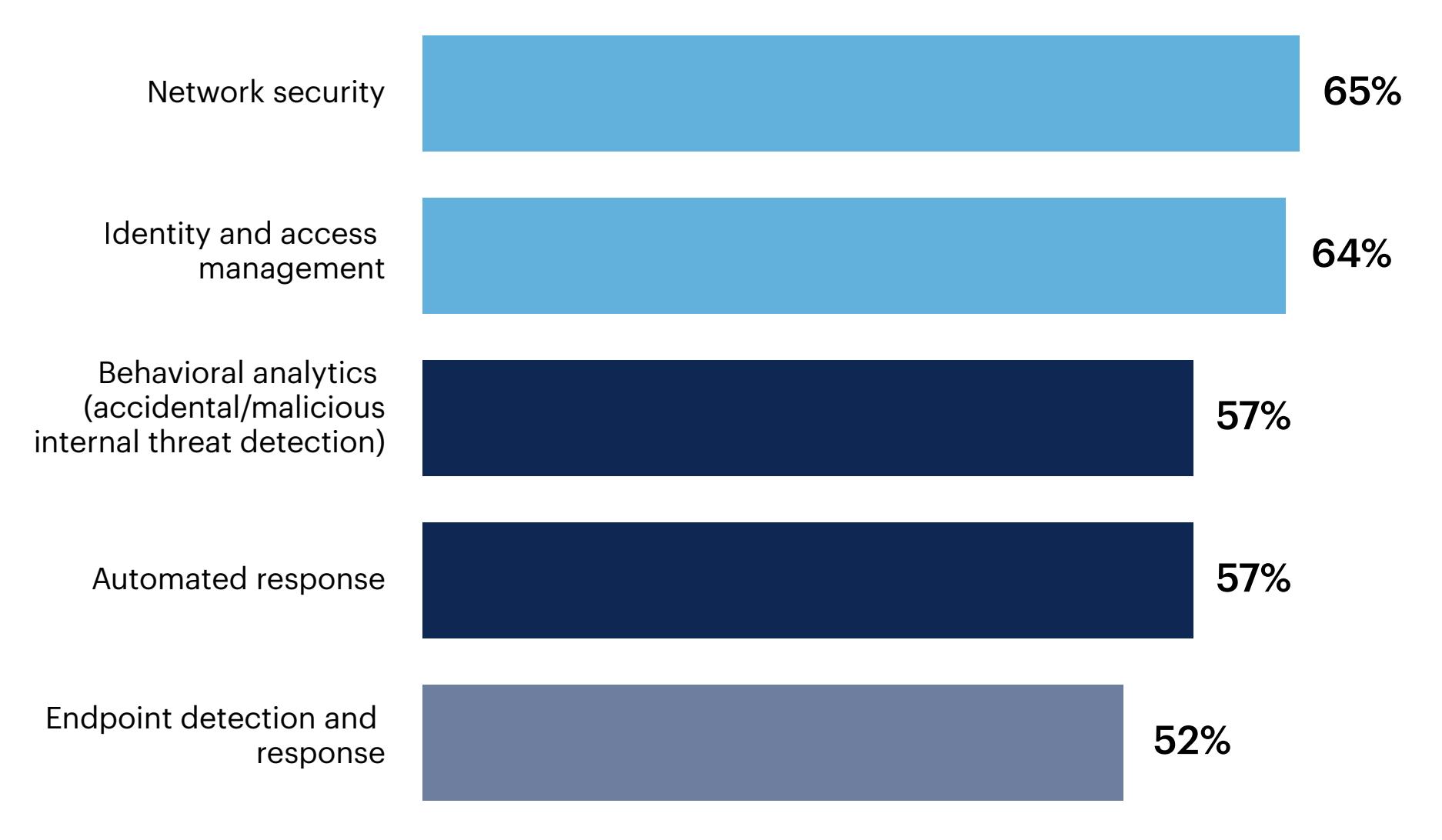
Cloud security 50%, Application security 45%, Security orchestration 36%, Event logging 29%, Data management 18%, None of these 1%, Other 0%
86% of decision-makers believe the use of AI technology in cybersecurity tools will 86% reduce the success of zero-day security incidents.
Do you think the use of AI technology in cybersecurity tools will reduce the success of “zero-day” incidents (novel security events)?
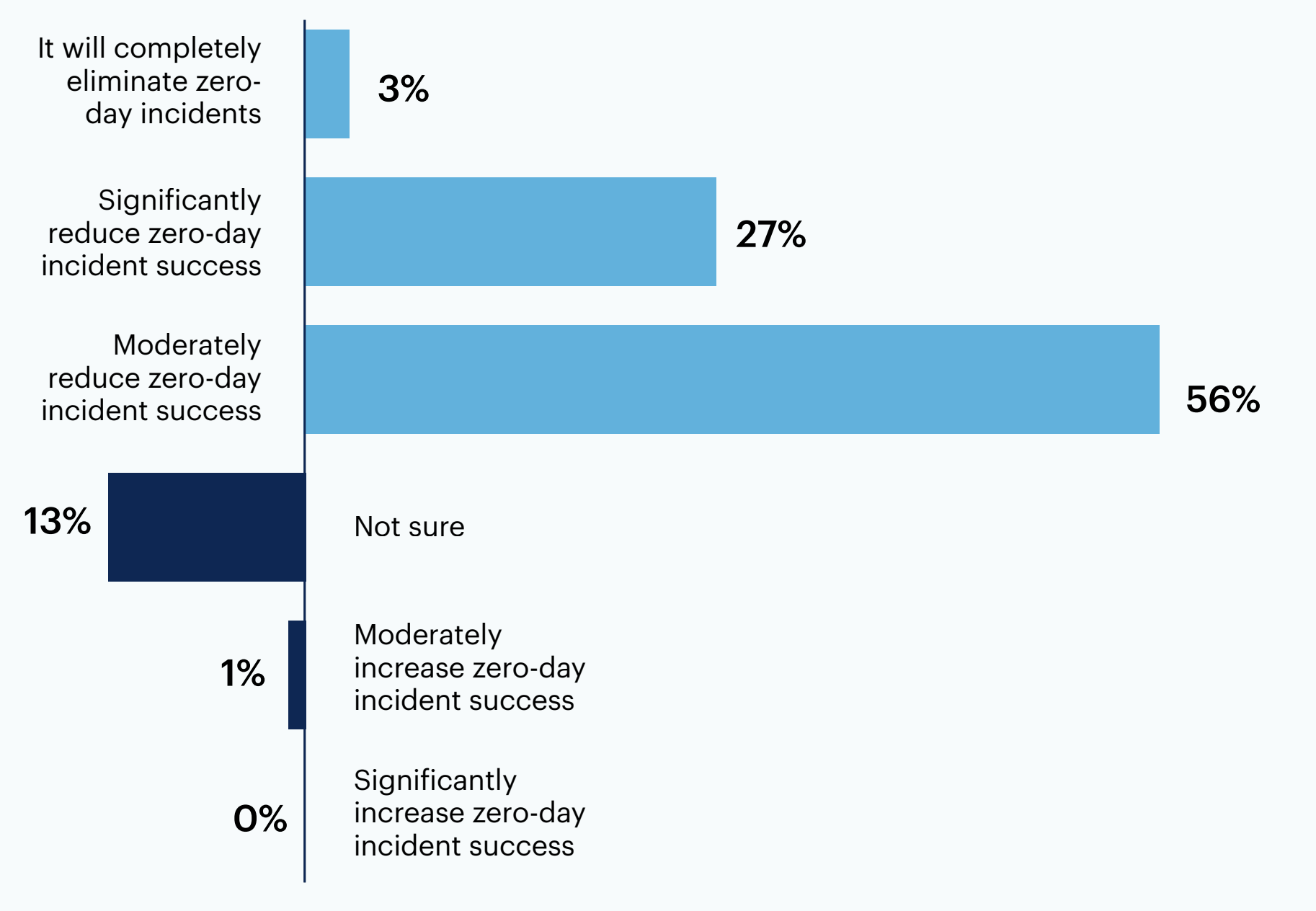
[AI can] help catch the thief [on entry] rather than chasing [them] after the damage is done.
Decision-makers believe AI is the future of cybersecurity
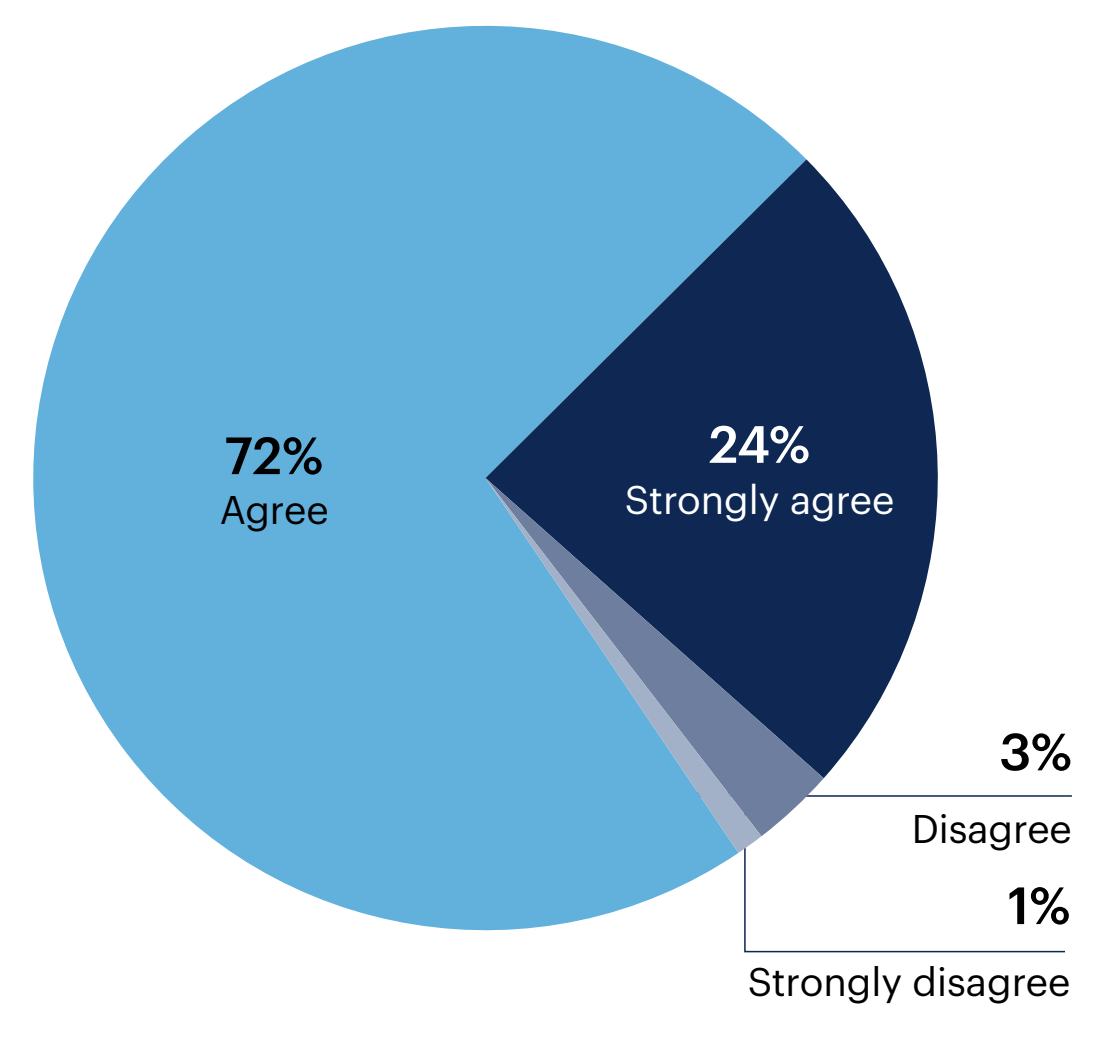
Almost all (96%) decision-makers agree that AI technology will be critical for the future of organizational cybersecurity, with almost a quarter (24%) strongly agreeing.
To what extent do you agree with the following: “AI technology will be a critical tool for the future of organizational cybersecurity.”
[AI in cybersecurity is] an emerging area that we’d like to hear more success stories [about].

Want more insights like this from leaders like yourself?
Click here to explore the revamped, retooled and reimagined Gartner Peer Community. You'll get access to synthesized insights and engaging discussions from a community of your peers.
Respondent breakdown
